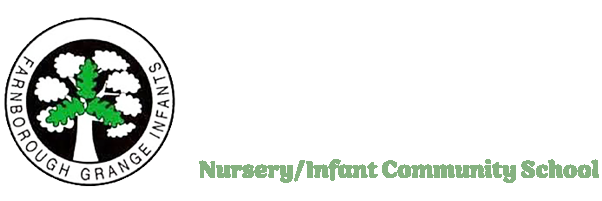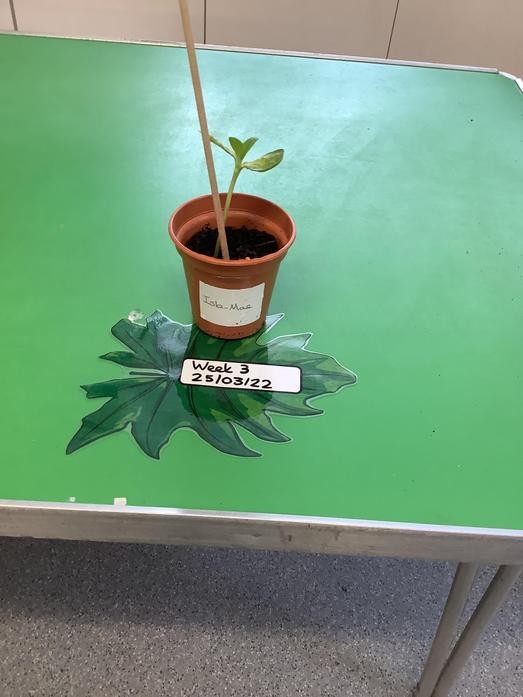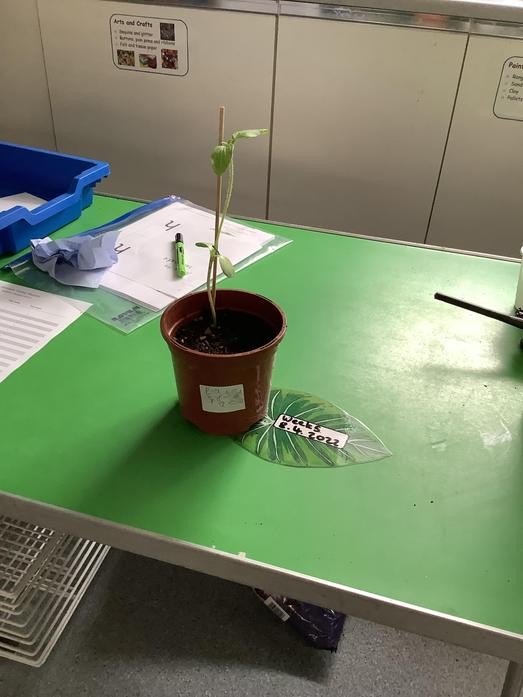Science
Intent
At Farnborough Grange Nursery and Infant School, the Science curriculum is designed to provide a rich and stimulating learning experience that fosters curiosity, develops scientific knowledge, and nurtures essential scientific skills in our young learners. We aim to create a foundation upon which children can build their understanding of the world around them and develop a lifelong love for scientific enquiry.
Science here is taught through the aid of the ‘Plymouth Science’ scheme because it clearly follows the progression of skills and vocabulary implemented by the PSTT (Primary Science Teaching Trust) and also references the National Curriculum, 2014. The expected outcomes are also in line with End of Year Expectations.
The vision for the children at Farnborough Grange, as scientists, is as follows:
Our children:
-
Are excited and engaged with the Science curriculum, as well as enjoy science investigations which are planned for by adults, and where adults foresee / are flexible as to where learning takes them.
-
Understand how Science relates to the real world, with regards to experiences (such as cooking, gardening, etc.) and future jobs.
-
Understand the importance of caring for and learning about the world around us.
-
Use outdoor learning opportunities to inspire curiosity, encourage questioning and find out information.
-
Will be encouraged to ask questions about the curriculum content, using key scientific language and vocabulary, using this in cross-curricular learning where applicable
-
Are inspired by Science, referring to famous scientists and their research/ inventions.
-
Work independently and collaboratively in Science tasks and investigations.
-
Can reason and explain their scientific answers, verbally and in written form
-
Are prepared for a scientific and technological world, being inspired through lessons.
Implementation
The Science curriculum is therefore implemented at each stage in the following ways:
EYFS
-
In Nursery, children are taught about ‘Understanding the World’ including themselves and using the topics of plants and materials to demonstrate their understanding.
-
In Reception, children are taught about seasonal changes & natural environments, as well as life cycles, plants and materials.
-
Skills include exploring, drawing, comparing/noticing differences, repeating actions, looking after and talking.
-
Children develop their vocabulary through exposure to some key scientific words and begin to use them correctly in a scientific context.
-
Children have the opportunity to apply their learning through cooking, messy play, describing and recognising.
Year 1
-
In Year 1, children are taught to track seasonal changes via a longitudinal study, learning about animals including humans, as well as the topics of plants and materials and their properties.
-
Skills include identifying and classifying, asking simple questions, comparing and contrasting, observing closely, and gathering and recording data.
-
Children develop their vocabulary, building on that already learned in the EYFS, and defining the specialist scientific words.
-
Children have the opportunity to apply their learning by distinguishing between objects and materials, and comparing and grouping together a variety of everyday materials on the basis of their simple physical properties. They will have knowledge of the structure of a variety of common animals. The children will also identify and name a variety of common, wild and garden plants, including deciduous and evergreen trees, as well as identify and describe the basic structure of a variety of common flowering plants including trees.
Year 2
-
In Year 2, children are taught the topics of Plants, Living things and their habitats, Animals including humans and materials and their properties (as well as the use of everyday materials).
-
Skills include observing closely, performing tests, identifying and identifying impact (e.g. light on plants), grouping and classifying as well as recording findings and interpreting them.
-
Children develop their vocabulary building on that already learned in the EYFS and Year 1, by defining and giving examples of key scientific words.
Provision for key groups at our school
-
EAL, SEND- vocabulary mats, use of traffic light system to self-assess, hands-on experiments.
-
Greater depth – Opportunities to extend our young scientist’s skills and knowledge are identified for each unit in our progression of skills documents.
e.g. Animals including humans: Explain that animals reproduce in different ways, Name some characteristics of an animal that help it to live in a particular habitat, Describe what animals need to survive and link this to their habitats...
- Encouragement of home learning as detailed in the scheme of work.
Wider opportunities
-
Children are given the opportunity to attend a Science after-school club.
-
All children across the school attend Forest School sessions to explore nature and the outdoors (one half term every year).
-
Each year, we hold a Science Week which all children participate. This gives children to apply their scientific skills, knowledge and understanding in a wide variety of contexts.
-
We participate in the ‘Great Science Share for Schools’ annually. This is a campaign that gives the children the lead in asking, investigating and sharing scientific questions they care about with new audiences. It is an inclusive, non-competitive and collaborative experience for all.
Impact
Our intent and implementation strategies have a clear and demonstrable impact on our infants' learning, progress, and attitudes towards Science. The impact is measured through various means, including:
1. Attainment and Progress
Through ongoing formative assessment in lessons, we monitor each child's progress in Science and ensure they are meeting age-related expectations. We celebrate the achievements via work on the working wall or Science displays.
2. Pupil Engagement and Inspiration
Our Science provision has a positive impact on our infants' engagement and motivation. The practical and hands-on experiences, alongside exciting topics and investigations, inspire children to pursue further knowledge and develop a long-lasting interest, and belonging, in the world of Science.
3. Development of Enquiry Skills and approaches.
Our focus on scientific enquiry, approaches and communication skills has a positive impact on our infants' overall learning and development. These skills enable them to approach problem-solving tasks confidently, think independently, and articulate their ideas effectively.
4. Application of Learning
The impact of our Science provision is evident when children can apply their scientific knowledge and skills to real-life situations. They demonstrate a deeper understanding of scientific concepts, make connections between different areas of Science, and are working to express their thoughts and opinions.
5. Positive Attitudes and Aspirations towards Science
Our intent and implementation strategies foster positive attitudes towards Science in our infants. They develop a curiosity-driven mindset and a belief that they can aspire and succeed in the subject. They show enthusiasm to explore the world around them, ask scientific questions, and actively participate in Science-related discussions and activities.
Overall, our intent, implementation, and impact statement for Science at Farnborough Grange, align with the Ofsted inspection framework's best practices and contribute to providing a great Science education for our children.
Our little scientists may start small with their predictions, observations and knowledge, but we hope for them to dream big in the world of Science which surrounds us all.
What do our children learn in Science?
Our Science Learning - The children in Year 2 planted their own bean seeds. They observed the changes to the plants each week and recorded their findings.



